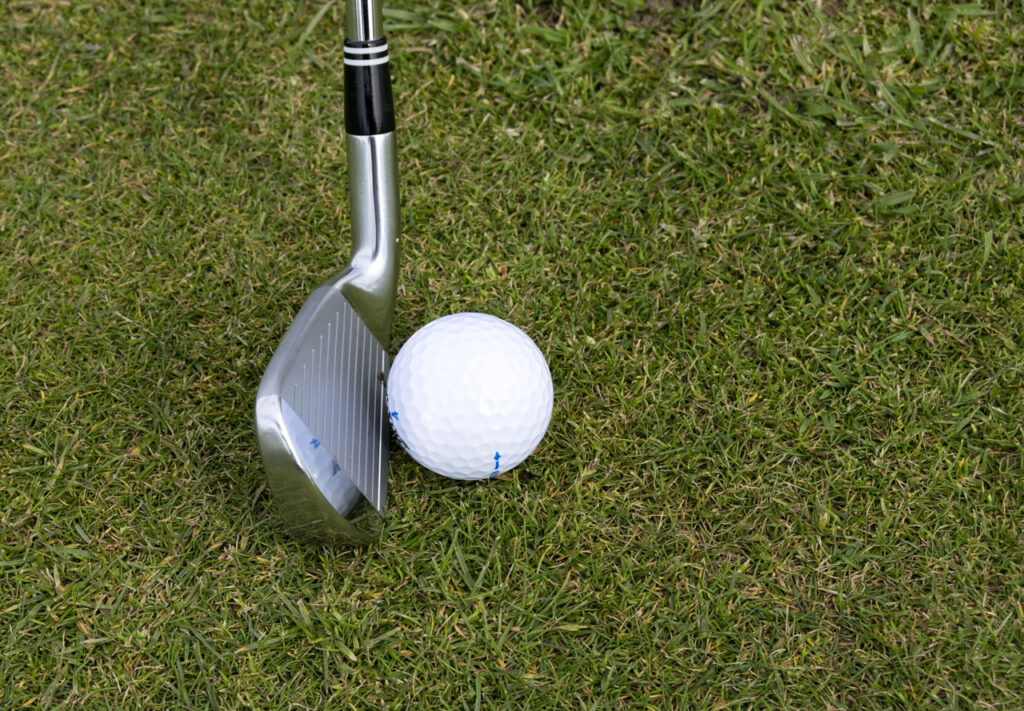One of the most popular types of golf played in professional tournaments is match play.
It is the original format and according to some experts also the simplest.
Nowadays it is the current format of some of the most special tournaments, which choose to respect the tradition and roots of this sport, such as the World Match Play (which today has its headquarters in Malaga) and the Ryder Cup.
In addition, it is a very advisable option for couples who go out to play, because they can compete against each other or join another couple, forming two opposing teams.
And if we talk about Match Play, we have to mention the great Severiano Ballesteros, who declared on numerous occasions that this was his favourite golf format. And so he proved, because the 5 victories he won in the World Match Play Championship at Wentworth (he did not lose any final) were the ones he held in the highest honour in his record books.
How to play Match Play: rules and description.
This modality has a particular set of rules, which we will tell you in detail.
It is played by holes.
Each hole you win is like a mini victory. In other modalities, the total number of strokes over the 18 holes is added up, and the final figure is the one that marks the results of the game.
In Match Play, at the end of each hole this calculation is made and the winner scores a point. In this way, it is possible that the player with the lesser number of strokes loses the match because his opponent has won a greater number of holes.
And to win the hole, there are three possible scenarios:
– If you finish it with a lower number of strokes than your opponent.
– If your opponent concedes the hole.
– If your opponent commits a penalty that results in losing the hole.
You tie when you finish the hole with the same number of strokes.
You win the match when your lead is greater than the number of holes left to play.
Also, if your opponent concedes the match or is disqualified.
In case of a tie after the last hole, you will continue to play hole by hole to find out the winner. This round ends with the first player to win a hole being the winner.
The round of play is decided on the first hole by agreement or by drawing lots. From this point onwards, the honour goes to the player who has won the previous hole.
Remember that the order of play is very important in Match Play. If you play out of turn, your opponent can cancel the shot and force you to play again.
It is not necessary to play all 18 holes.
As we have said, this game is won by whoever manages to score the most holes.
If you are three holes down and there are two holes to go, you have no chance of tying or winning. The round would end at that point and you would have made a match, which is the term for victory.
Did you draw? The term will be all square.
Sometimes it can happen that there are two holes left to play, for example, and you are two holes behind. In that case, you’re behind and this means that you must win all the remaining holes to tie.
In this situation, there is the possibility when you see your opponent’s ball very close to the hole to pick up the ball and call it a bogey. You do this by saying gimmie or dada.
You can agree on a tie for the hole or the half and in this case no putts will be given for any outstanding putts.
Can I repeat a stroke?
Yes, you can, although sometimes this will depend on your opponent.
For example, if you go out of bounds, you may be asked to repeat it.
If you send the ball to the wrong hole, you can repeat it, but in this case it will depend on the generosity of your opponent (something that rarely happens in competition).
You will have to repeat it when you play the ball and it was not your turn, because you must respect the turn of play, which belongs to whoever has the ball furthest from the hole at that moment. There are occasions when this is difficult to decide and if there is no agreement, you will have to decide by flipping a coin.
Match Play Tournament.
A match play tournament consists of playing successive knockout rounds until one wins. It is played in this way in the World Match Play, which is a team tournament.
Also in the Ryder Cup, the Match Play tournament for excellence, which is held every two years and pits Europeans and Americans against each other.
It is played in three rounds. The first two in pairs, also called sides, foursomes (one ball per team, alternating strokes) in the morning and fourballs (each player, even if from the same team, plays his ball individually) in the afternoon. The third, singles, 12 against 12.
The women’s version of the Ryder is the Solheim Cup, which pits the best players on the tour against each other.
When competing as a team in fourballs, if your teammate scores the ball before you, you don’t have to finish the hole.
There is a final form called Three-Ball Match Play, in which three players play individually against the other two players at the same time. Each player plays one ball, which is valid for both matches.
Penalties in Match Play.
There are three types of penalties:
– One stroke penalty.
– Loss of the hole.
– Disqualification.
We can say that in Match Play, it is the players who apply the rules, they can decide between them the issues that arise, without the need to call on the assigned referee, something that does not happen in other forms of golf.
If your opponent has breached a rule that involves a penalty, you can ask for it or ignore it.
But if you both agree to ignore an infraction or penalty reflected in the rules of golf, you will be disqualified.
If you do not agree, you may protect your rights and request a review.
The general penalty for breaking a rule is the loss of the hole.
If you play from where you are not supposed to play a ball that is not yours, move it without replacing it, touch the bunker before playing the ball or improve the landing area of the ball, you will be disqualified.
It is unusual in Match Play to get a two-stroke penalty, but you will get a two-stroke penalty if you move or touch your ball, lose it, call it unplayable, clean it when you shouldn’t or drop it badly.
Unlike in other forms of golf, in a Match Play competition you may practise on the course before a round or between rounds of a competition.
To be clear, “practice on the course” refers to playing a ball from anywhere or testing the green surface of the hole by rolling a ball a little or rubbing the surface.
In a tournament or when the game is played in pairs, there are different situations in terms of the application of the rules.
Thus, penalties are applied to the entire side when:
You exceed the 14 clubs limit, either by sharing, adding or substituting. If you realise this while playing, you will have to wait to finish the hole and the penalty will be to subtract one point for each hole where there was an infringement, up to a maximum of two holes per round.
Your offence either helps your partner or hurts your opponent’s game.
However, if the infraction you incur is not penalised by disqualification, it will only apply to you and if the penalty is the loss of the hole, your partner may continue to play the hole on behalf of both of you.
Fair play or how to play responsibly.
There is certain information that you must provide to your opponent, on which certain circumstances of the game depend and you are responsible for being transparent and honest, so that the game is played on as level a playing field as possible.
Therefore, you must inform him/her of the exact number of strokes you are carrying if he/she asks you or inform him/her of any infractions committed as soon as possible.
You have to report your handicap because it affects the number of strokes you give or get.
Declaring a handicap higher than yours will result in disqualification.
If you declare a handicap lower than yours, you will not be penalised, but you must play with that declared handicap.
It is a modality chosen by many players and the favourite of the great figures of this sport.
Whatever you choose, the important thing is that you enjoy golf and all the benefits of playing it.


